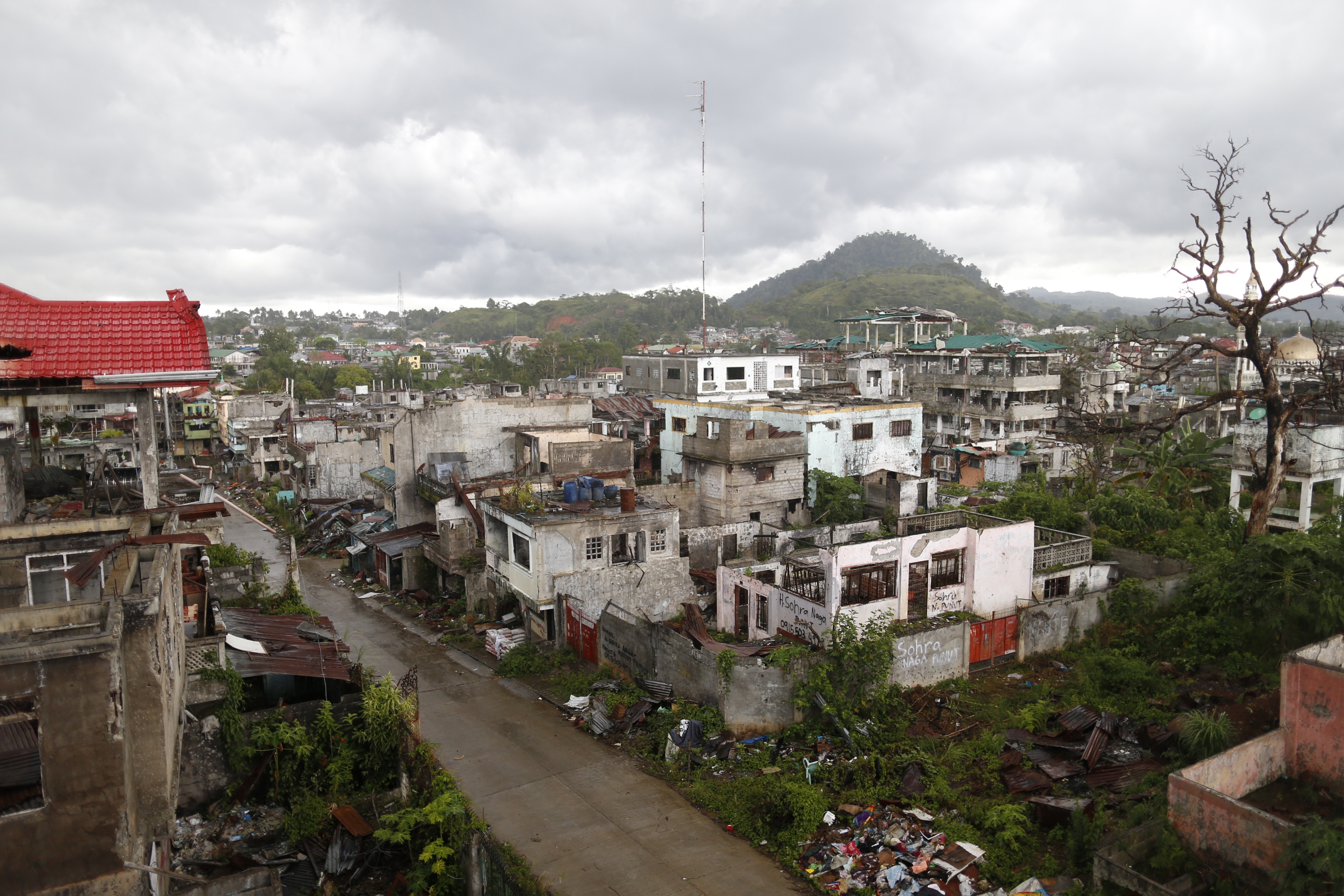
BATTLE ZONE This part of Marawi City has become known as ground zero of the war on Islamic State. —INQUIRER FILE PHOTO
ZAMBOANGA CITY—Lack of technology that could detect unexploded bombs is slowing down the military’s clearing operations in Marawi City, according to the military.
But Armed Forces Chief Carlito Galvez Jr. said soldiers were almost done with clearing at least 250 hectares of the area that had become the main battle zone between government forces and followers of Islamic State last year.
Galvez said rehabilitation of the area would be in full swing soon.
Brig. Gen. Arnold Fernandez, head of Joint Task Group Builders, which was in charge of clearing and rehabilitation efforts, said more than 70 unexploded bombs had been safely detonated since the clearing operations began.
Tedious process
Each bomb required two weeks to unearth and be detonated safely, Fernandez said.
At least 16 of the bombs were the 500-pound type, which Fernandez said were the “big ones and the more devastating bombs.”
Several 260-lb and 110-lb bombs were still buried, he said.
“It takes time to track because we still lack radar capability,” Fernandez added.
Safety
The 250-hectare area in ground zero nearly cleared by soldiers was just one of nine sectors in the city devastated by the war.
Galvez, however, expressed optimism rehabilitation would soon proceed unimpeded.
Clearing the area of bombs, Galvez said, was meant to ensure the safety of Marawi residents when they return home.
Groundbreaking rites for rehabilitation were held on Oct. 17.
According to Galvez “the intensity of the damage” had drawn help from several countries like China, United States, Australia, Japan and international organizations.
“They have committed and poured in resources like money,” he said.
The United States alone, Galvez added, committed P1.2 billion for the rehabilitation of schools.
Dissatisfied
A group of Marawi residents, however, continued to be wary about steps being taken by the government in the city during the rehabilitation period.
Drieza Lininding, chair of Moro Consensus Group and a displaced resident, said his group was bothered by efforts to persuade residents to sign waiver for the demolition of their homes.
He cited the case of Tolali village, which was part Sector 1 of ground zero.
Lininding said not all houses in the village had been destroyed and people were puzzled why houses that remained standing were included in the demolition program.
“Nothing is mentioned about compensation,” Lininding said.
“What if we sign this, do we still have the right to claim ownership?” he added.
China master
“If the houses are already destroyed, can we still run after the government?” he said.
He said the P75-million fund for Marawi rehabilitation might have already been used up for the clearing operation alone.
Residents, he added, were also wary that the government would rely only on China for the rehabilitation.
During dialogues between residents and builders, he said, it became clear to residents that “what these builders are waiting for is the Chinese government.”
“Imagine, China to rebuild Marawi?” he said.

